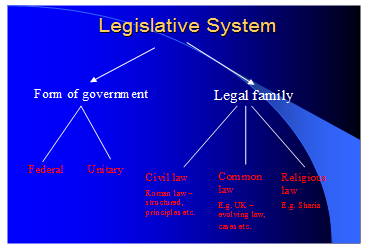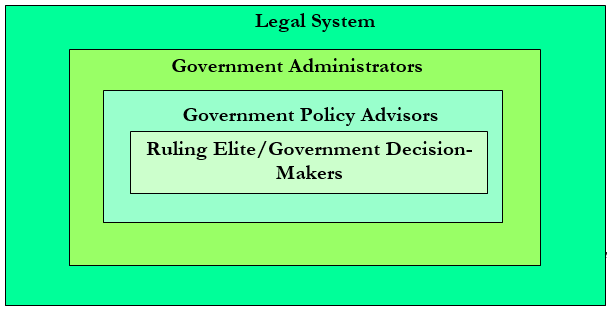- Home
- Directory
-
Our Programs
-
Strategic Advocacy Course
- Collaborations
- Humane Education
- International Policy
-
Model Animal Welfare Act
- Get the Book!
- Contents
- Part 1: Guiding Principles - A Broad Overview
- Part 2: Proposal for the Wording of a New Animal Welfare Act
-
Part 3: Explanatory Notes
- Notes to Chapter 1: Preliminary Provisions
- Notes to Chapter 2: General Provisions
- Notes to Chapter 3: Keeping of Animals/Care of Animals
- Notes to Chapter 4: Specific Categories of Animal Use
- Notes to Chapter 5: Implementation and Enforcement Provisions
- Notes to Chapter 6: Penal and Final/Concluding Provisions
- Constitution Project
-
Strategic Advocacy Course
-
Resources
- Events
- About Us
- Blog
- font size decrease font size increase font size
- No comment

Policies
Policymaking Systems
Structures
Processes
Administration and Enforcement
"To change the world, we must first understand it."
Former UN Secretary General Kofi Annan
Policies
Policies form the basis for policy action. They can be international or regional policies (including conventions and agreements), national or organizational.
Research into policies (and policy commitments) can help to identify policy implementation gaps, as well as future plans. Policy research is another important area, as this informs future policy-making. Policy research can be carried out at international, regional, national or local level.
Where national standards of animal welfare are low, the OIE’s international standards on animal welfare are key tools that we can use to hold states accountable in delivering acceptable standards of animal welfare. Advocacy is a key tool to ensure the implementation of these standards, and to hold governments to account.
Policymaking Systems
Different countries have different legislative systems, which will impact upon their policy system. Sometimes the provincial or local government might be the target for your advocacy rather than national government. There are also different legal systems (civil law, common law and religious law).
There is sometimes also a written constitution for the country, which is not legislation as such, but provides guiding principles for the country. Constitutional principles have higher standing than legislation (either acts or regulations), and can usually be challenged in a constitutional court.
Some countries are also part of a larger policy-making unit, which can involve policy-making with a number of countries (such as the Southern African Development Community (SADC), the African Union, or the Association of Southeast Asian Nations - ASEAN).
A critical element in the success of any advocacy campaign is a good understanding of the policymaking system of your country. This includes the formal and informal ways in which policies are made at different levels. This analysis helps you to understand the opportunities that exist, including critical points of timing (‘policy windows’).
This knowledge also prevents NGOs from making tactical mistakes that can alienate policy-makers.
In many countries, government and political leaders remain skeptical about including civil society in policy-making, believing that they lack appropriate experience, skills, and knowledge. The way to overcome this perception is to become a skilled and knowledgeable advocate.
"Being aware of the political environment is also very important. There are times when our findings have not been taken seriously, or have been set aside, because the political timing was not right or the research came at an inopportune time in terms of the politics around the research findings."
Mavuto Bamusi of the Malawi Economic Justice Network
The following areas should be covered in the information gathered about the policy-making system:
- The legislative system
- Administrative and enforcement systems
- Policymaking processes
- Agenda setting: including priority of issues
- Timings: including possible policy ‘windows’/opportunities and timing for input/influence (e.g. public reviews or consultation meetings or processes)
- Role of relevant organizations and individuals dealing with your issue
- Role of research and input
- Role of pilot projects
- Relevant conferences/events
- Role and influence of service delivery
- Role/possibility of commissions, working groups or parliamentary committees focusing on your issue (or others which may impact on animal welfare)
Advocacy is not only about changing policies. It is also about changing policy-making structures and processes, to make decision-making more democratic, just and inclusive.
Structures
Legislative structures often follow a system along the following lines:
There can also be broader policy-making structures, some of which feed into this legislative system. These include: international, regional and sub-regional organization and groupings; issue forums; donor forums; civil society networks; business networks; and trade linkages. These all need to be mapped and understood.
Processes
Policy-making processes should also be mapped and understood. This includes the legislative process, which can be quite complex, with various stages for formulating policy, drafting legislation, consultation, and the passage of laws through committees and governmental systems. These processes affect timing, and opportunities for input and influence.
Administration and Enforcement
It is also necessary to map and understand how policies are administered and implemented (and by whom). In many cases, laws are agreed on paper but not enforced, so they are ignored in practice. Factors affecting implementation will include: the nature of the bureaucratic processes (transparency, accountability, participation and corruption), incentives, capacity, and the level of practicality, feasibility and acceptability of the policy.
In this category, it is necessary to include research into factors such as budget allocations; staffing levels and allocation; skill and knowledge levels (training); vehicle and equipment allocations; and monitoring and evaluation mechanisms (i.e. feedback on administration and enforcement, as well as budgetary aspects).
Research should include awareness of policies and practices, as this will impact upon the effectiveness of implementation and enforcement.



